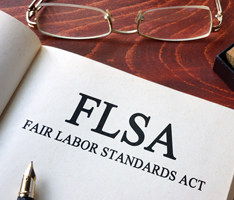
According to the FLSA, exempt employees are not entitled to receive overtime pay, while non-exempt employees are entitled to overtime pay if they work more than 40 hours per week. Different types of exemptions exist depending on the industry of the employee, as well as the requirements of the job.
Exemption Classifications
Most employees fall under one of three exempt classifications: executive, administrative, or professional. Employees that fall under these exemptions, which are referred to as white-collar exemptions, may be exempt depending on two combined factors: salary and duties. To be classified under a white-collar exemption, the employee must be paid on a salary basis. This does not mean, however, that all salaried employees are automatically exempt. Employees who can be classified as white-collar, but that are paid hourly, per diem, or by commission cannot be classified under white-collar exemptions, and are non-exempt employees.
Salaried employees that fall under white-collar exemptions are subject to certain restrictions depending on the amount of the salary and the form in which the salary is paid. To make exemptions more complicated, employees that fall under white-collar exemptions are subject to duties that may impact exemption status. Based off the employee’s job description, exemptions can only be made if the employee performs specific tasks determined by the FLSA. Exemptions based on duty vary on employment type, but commonly include:
Executive exemptions at the managerial level: To be considered exempt under the executive level, an employee must supervise two or more full-time employees, and have the authority to hire and terminate employees.
Administrative exemptions for assistants: To be considered exempt under the administrative level, an employee must exercise discretion and independent judgment with respect to matters of significance. This exemption requirement relates to decisions that have a financial or operational impact for the business or company.
Montgomery County Employment Lawyers at The Gold Law Firm P.C. Assist with Employment Exemptions
If you or someone you know is drafting an employment policy, or has experienced difficulties as an employee, including employment termination or discrimination, we may be able to assist you. Do not hesitate to contact our experienced team of Montgomery County employment lawyers at The Gold Law Firm P.C. With an office conveniently located in Philadelphia, Pennsylvania, contact us online or call 215-569-1999 to discuss your employment concerns today.



































